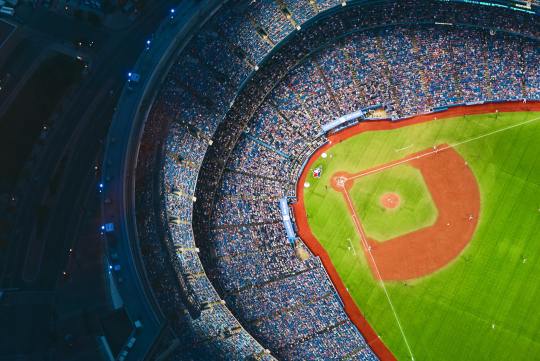As a District Sales Manager for General Motors based in Mankato, Minnesota, Brandon Genovesi works with GM dealers to ensure that customers have the best experience when purchasing a vehicle. Brandon Genovesi joined the firm in 2021 and is dedicated to fostering a culture of integrity and excitement, assisting dealers in numerous ways to cultivate customer loyalty. Before joining General Motors, Mr. Genovesi worked in sales at The Stanford Group of auto dealerships in Dearborn, Michigan, from 2016 to 2021. There, he held several roles, including being GM’s brand ambassador, structuring retail/lease advertising strategies and assisting in inventory management. Mr. Genovesi’s expertise and experience in sales enabled him to develop and maintain a loyal customer base by building relationships and offering excellent customer service. Brandon Genovesi earned a bachelor of arts degree in education from Ashland University in Ashland, Ohio. Over the years, in addition to his sales expertise, he has amassed skills and experience in business analytics, quality assurance, product support, and business administration and management, among other areas. https://www.linkedin.com/in/brandon-genovesi-2517b5245/ https://www.pinterest.com/brandongenovesi0055/ https://medium.com/@brandongenovesi https://www.brandongenovesi.com/
Don't wanna be here? Send us removal request.
Text
0 notes
Text
0 notes
Text
0 notes
Text
Baseball's Long Road at the Olympics

The invention of the American sport of baseball is often credited to Abner Doubleday in 1839, though the game can be traced back as far as the 18th century. By the 1860s, baseball had taken on the title of the “nation’s pastime.” Major League Baseball formed in 1876 and the sport has spread throughout the country, and the world, ever since. While the sport has a long, rich history in the United States, baseball’s inclusion at the Olympics has been sporadic.
Baseball was first featured on the Olympic stage during the 1904 Summer Olympics in Saint Louis, Missouri, the first modern Olympics held on American soil. However, the sport’s inclusion was unofficial, not even constituting a demonstration sport, and there is little recorded information about what games were played.
Baseball was not included during the 1908 games in London, but was featured as an official demonstration sport in Stockholm at the following summer games. The program consisted of a single game played between the US and Sweden at Stockholm’s Ostermalm Athletic Grounds. America raced out to a 5-0 lead after two innings and sealed the game, which lasted six innings, with 8 runs in the fifth inning for a 13-3 victory.
Baseball did not feature at the Olympics again until 1936, again appearing as a demonstration event. This time the US Olympic team faced the “World Champions,” who were in fact a second team of American players. The World Champions broke a tie in the bottom of the seventh inning, winning 6-5 in front of 90,000 spectators at Olympic Stadium in Berlin.
Once again, Olympic officials and host nations elected not to continue or expand the baseball program. Pesäpallo, a Finnish variant of baseball, was featured as a demonstration sport at the 1952 games in Helsinki, and host nation Australia chose baseball as a demonstration event in 1956. The game between the US and Australia, an 11-5 win for the Americans, was the first baseball game between international teams in 44 years. The 1964 Olympics in Tokyo represented the fifth and final time the Olympic baseball program would consist of a single demonstration game.
Two decades later, the 1984 Olympics in Los Angeles brought baseball back as a demonstration sport, but this time with a full program. Baseball was a full demonstration sport again in 1988 before joining the Olympic program as an official sport in 1992.
The Barcelona Olympics saw Cuba become the first ever gold medalists in baseball, defeating Chinese Taipei 11-1 in the final game. Japan defeated the US 8-3 to win bronze. Cuba defended its gold medal at the Atlanta games in 1996 and placed first for a third time in 2004. Gold medals went to the US and South Korea in 2000 and 2008, respectively.
Baseball was not featured at the 2012 London or 2016 Rio de Janeiro Olympics, but returned in 2020. Host nation Japan defeated America 2-0 to win gold, while the Dominican Republic secured bronze.
There is no women’s baseball program at the Olympics. However, softball joined baseball as an Olympic event during the 1996 Olympics in Atlanta. The US women’s team won three consecutive gold medals before losing 3-1 to Japan during the 2008 gold medal game in China. Japan again defeated the US, by a score of 2-0, to win gold in 2020.
The International Olympic Committee has announced that neither baseball nor softball will feature at the 2024 games in Paris. The 2028 games have been scheduled for Los Angeles.
3 notes
·
View notes